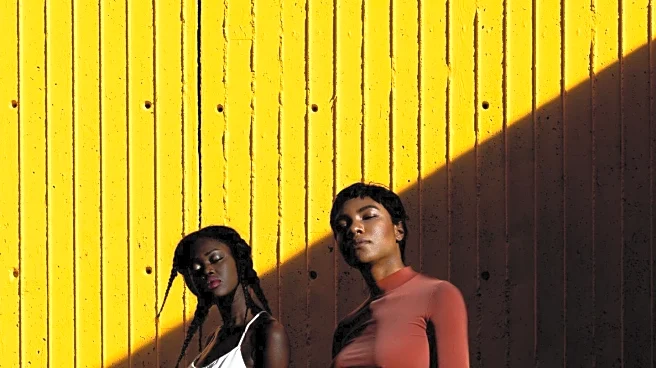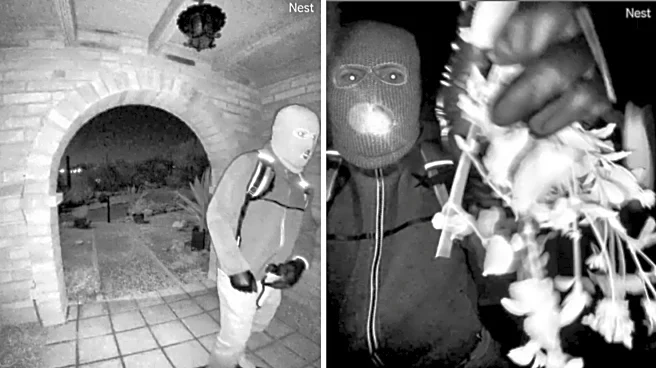What's Happening?
A recent article highlighted the adultification bias faced by young Black girls, using North West's fashion choices as an example. The term 'looks all grown up' was used to describe North's outfit, which
included a black corset and pleated skirt. This language reflects a broader societal issue where Black girls are perceived as older and more mature than their peers, often leading to a lack of protection and guidance. The article draws on personal anecdotes and a report from Georgetown Law's Center on Poverty, which found that Black girls as young as five are subject to these biases. The narrative explores how these perceptions affect the self-image and personal development of young Black girls.
Why It's Important?
The adultification bias has significant implications for the social and psychological development of young Black girls. It can lead to unfair treatment in educational and social settings, impacting their confidence and opportunities. By highlighting these issues, the article aims to raise awareness and encourage a reevaluation of how society views and treats Black girls. Addressing these biases is crucial for fostering an inclusive environment where all children can express themselves freely and develop their identities without fear of judgment or discrimination.
Beyond the Headlines
The discussion around adultification bias also touches on broader cultural and ethical considerations. It challenges societal norms and calls for a shift in how media and individuals perceive and portray young Black girls. This issue intersects with conversations about race, gender, and media representation, prompting a need for more inclusive and sensitive approaches in these areas. Long-term, addressing these biases could lead to more equitable treatment and opportunities for Black girls, contributing to a more just society.










